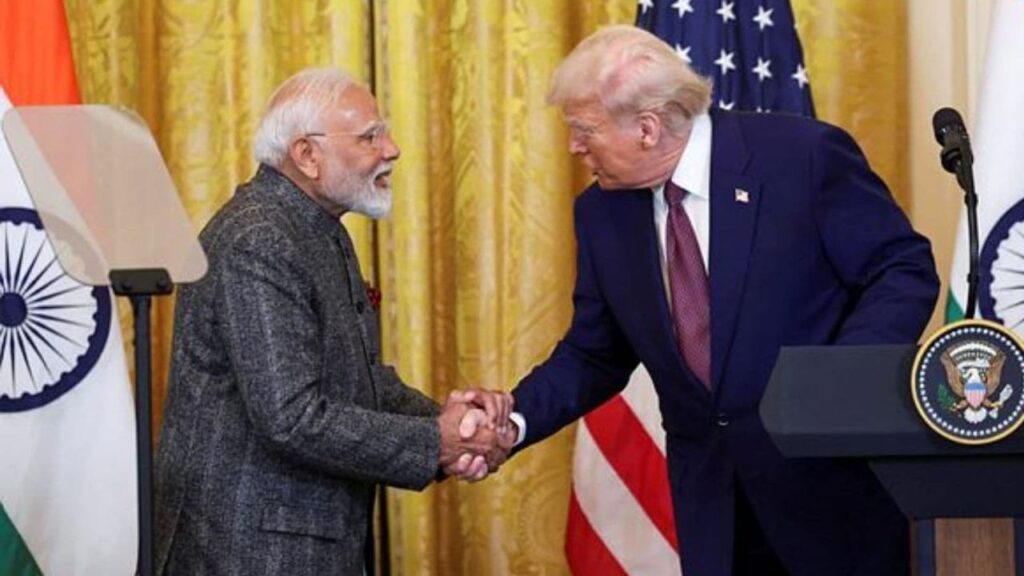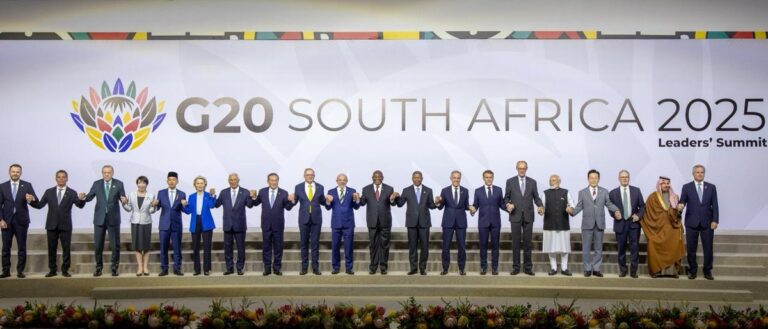
US President Donald Trump is no longer expected to travel to India later this year for the Quad Summit, according to a report by The New York Times published Saturday. The paper, citing people familiar with the President’s schedule, said the change reflects growing strains in Trump’s relationship with Prime Minister Narendra Modi.
The report — titled “The Nobel Prize and a Testy Phone Call: How the Trump-Modi Relationship Unravelled” — said Trump had earlier assured Modi he would attend the high-level Quad meeting in India. However, the plan has now been shelved. Neither New Delhi nor Washington has issued an official statement on the matter.
India is slated to host the Quad leaders’ summit later this year, following the foreign ministers’ meeting held in Washington in January, just after Trump began his second term in office.
A clash over Pakistan
According to the NYT, tensions escalated after Trump repeatedly asserted that he had “resolved” a brief but intense flare-up between India and Pakistan in May — a claim strongly rejected by New Delhi. Modi was reportedly irked by the statements, which Indian officials described as inaccurate.
The situation came to a head during a 35-minute phone call on June 17, as Trump was returning from the G7 summit in Canada. Modi and Trump were supposed to meet in person on the sidelines, but the US President left early. Instead, they spoke by phone, during which Trump again suggested his intervention brought peace to South Asia and noted that Pakistan intended to nominate him for the Nobel Peace Prize.
The NYT report said Modi firmly pushed back, telling Trump the ceasefire was arranged directly between India and Pakistan without US involvement. Modi also resisted what was seen as an implied suggestion that India should back Trump for the Nobel.
Trade and tariff disputes
The newspaper further linked the cooling ties to Trump’s decision to impose steep new tariffs on Indian imports of Russian oil, describing them as penalties aimed specifically at India rather than part of a broader sanctions strategy. Analysts quoted in the report suggested the move reflected frustration with Modi over trade talks, rather than a coordinated effort to curb Russian revenues.
Richard Rossow of the Center for Strategic and International Studies noted that if Washington’s goal were truly to restrict Russian oil sales, the administration would have pursued secondary sanctions on multiple countries, rather than singling out India.
Growing silence
The NYT added that Trump, dissatisfied with stalled negotiations, tried to reach Modi on several occasions in recent months, but the Indian leader did not respond. Meanwhile, the White House has avoided commenting on their June 17 conversation, and Trump himself has made no public mention of it, though he has continued to repeat his claims of brokering peace between India and Pakistan.
The report concluded that what once appeared a close personal rapport between the two leaders has now frayed, with the US President’s pursuit of recognition for his handling of South Asia clashing with India’s longstanding resistance to outside mediation in its disputes with Pakistan.






